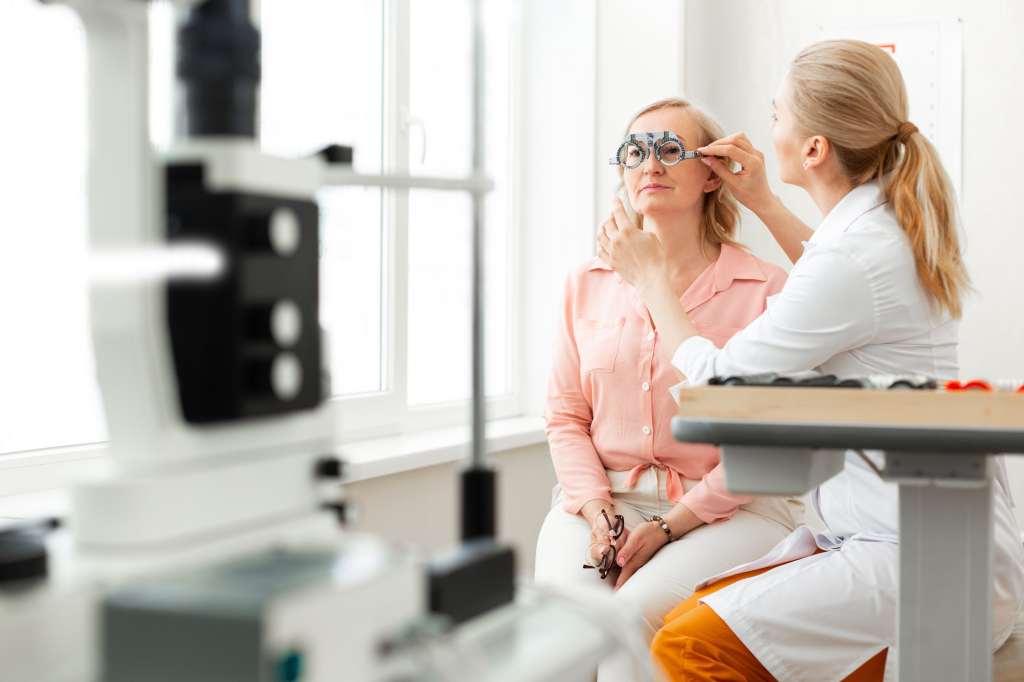Exploring the “Happiness Factor” in Dermatology
Being a physician of any sort can undoubtedly be stressful. Imagine having someone’s life in your hands (literally if you are a heart surgeon) and knowing that the decisions you make in the next few moments could determine life or death for the patient before you. There are so many variables in this profession, and even though science has advanced us a long way, there are still a lot of unknowns which can make becoming a doctor a formidable profession.
According to MedSchoolInsiders, 49% of doctors in all specialties express feeling burnt out during their career due to the administrative workload, taking on too much work, needy patients, or the ideals of perfectionism that doctors are expected to uphold.
Although being a healthcare professional in general is often known to be dominated by stress, long hours, and frequent demands, there are some specialties that go against the grain and stand out for their reputation and for consistently ranking highly among polls taken regarding contentment within their specialty. Among all of the specialties, dermatology, the branch of medicine concerned with skin disorders, continues to shine brightly year after year. It’s a continually sought-after specialty, especially now in 2024 as “10-step skincare routines” continue to dominate social media trends.
Although no longer at the tip top of the happiness scale (this position has been overtaken by plastic surgeons), cultivating job satisfaction and creating a work-life balance seem to go hand-in-hand with being a dermatologist.
But roughly, what makes dermatology and other healthcare specialties the happiest professions? How does one define happiness? In the following paragraphs, we explore statistics, salary insights, and the unique factors that help us define what a satisfying career in dermatology actually is, along with actual feedback from practicing dermatologists
What Makes a Specialty "Happy?"

Before diving into specific specialties, it's essential to understand what makes a healthcare profession "happy." Job satisfaction in healthcare often stems from factors like work-life balance, autonomy in decision-making, positive patient outcomes, and a supportive, consistent work environment. When it comes to work hours in particular, the length and flexibility of such can greatly affect life outside the hospital or clinic, like a doctor’s family, for example. Specialties like dermatology often offer more predictable schedules compared to the erratic hours in emergency medicine doctors might have to deal with. There are rarely any “on-call” or late nights in dermatology.
Surveys consistently show that these elements contribute significantly to overall happiness among healthcare professionals. Although this wouldn’t be every doctor’s definition, it’s what we have come to interpret as the meaning behind the adjective “happy.”
The Joy of Dermatology:

Dermatology emerges as a standout among happy specialties for several compelling reasons. Dermatologists enjoy predictable hours compared to many other medical fields, which contributes to a better work-life balance. The specialty also boasts high patient satisfaction due to the often visible and impactful results of treatments. Just think of a patient who had a distracting or embarrassing mole or pockmark, only to have it lasered off in mere minutes. Instant gratification for the patient and instant results.
Says Dr. Anna Chacon of Miami, Florida, “Working in dermatology provides me with the unique privilege of enhancing my patients' confidence and well-being. The blend of medical expertise, patient interaction, and visible results creates a deeply rewarding professional experience that continually fuels my passion for this specialty.”
Here are a few of the reasons why dermatology trumps other specialties when it comes to the happiness factor:
- Visible Impact: As mentioned above, dermatologists often witness visible improvements in their patients' skin conditions, which can be very rewarding emotionally and professionally.
- Diverse Cases: They encounter a wide range of cases, from medical dermatology (like skin cancer) to cosmetic dermatology (like acne treatment), providing intellectual stimulation and variety in their work. They don’t often get bored at work. It is not mundane.
- Long-term Relationships: Dermatologists often develop long-term relationships with their patients, which can lead to a sense of fulfillment and trust over time. A lot of patients end up seeing the same dermatologist and are advised to see them once a year.
- Advancements in Technology: Constant advancements in technology and treatment methods, like the latest photodynamic therapy, keep dermatologists at the forefront of innovation, offering new solutions to patients and, likewise, keeping dermatologists on their toes.
- Holistic Care: They contribute to holistic care by addressing not just skin issues but also their impact on patients' overall well-being, enhancing their role in healthcare. While some skin issues or concerns may be minor or topical like wrinkles, others like melanoma could be very serious and have an effect on overall health.
Whether treating acne, skin cancer, or performing cosmetic procedures, dermatologists witness transformative outcomes that positively impact patients' lives. These factors collectively contribute to high levels of job satisfaction among dermatologists, as they can tangibly see how their work affects others. “Choosing dermatology has been very fulfilling to me, thanks to the variety it offers daily—from treating skin cancer, reading slides at the microscope, to improving patients' appearances - thereby, their self-confidence. After rotating through all the specialties in medical school, there was no other field I could see myself in. I continue to be motivated by the positive impact I have on patients' health and happiness. Hearing “thanks doc” multiple times throughout the day keeps me going every single day. Sometimes I even wish I could go in on Saturday and Sunday (much to the dismay of my staff). The outpatient environment, high patient satisfaction, and occasional free product samples (who doesn’t love free stuff!) enhance my overall career satisfaction. Given the choice, I would choose dermatology again without hesitation,” says Dr. Amit Om.

How Much Do Dermatologists Make:
Financial stability is another significant aspect of job satisfaction. Even though people may say they don’t do it for the money, there is a high likelihood that the dollar amount plays a large factor. On average, dermatologists in the United States earn competitive, six-figure salaries. According to Physician’s Thrive, the median annual salary for dermatologists is 378,000. This, of course, depends on various factors such as location (the salary is highest in California), years in business, and whether they are in private practice or employed by a large hospital network. Additional benefits such as bonuses, retirement plans, and healthcare coverage further enhance the overall compensation package for dermatologists.
Compare Happiness Across Healthcare Specialties:
While dermatology stands out prominently, other specialties also enjoy high levels of satisfaction. Family medicine and psychiatry, for instance, are known for their fulfilling patient interactions and varied caseloads. However, each specialty offers unique advantages that cater to different professional preferences and interests.






